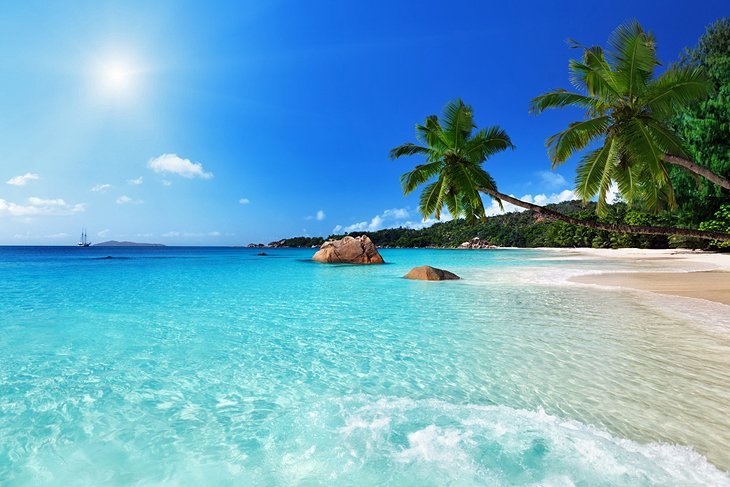Exploring Equatorial Guinea and Seychelles: From AGOA Graduates to Economic Powerhouses
Equatorial Guinea and Seychelles, two African nations with unique economic trajectories, have graduated from the African Growth and Opportunity Act (AGOA) due to their elevated income levels. Despite this shared milestone, their economic structures and development strategies differ markedly.
Here, we delve into the factors behind their AGOA graduation, the characteristics of their economies, and the challenges and opportunities that lie ahead.
Malabo, the capital of Equatorial Guinea, is situated on the island of Bioko in the Atlantic Ocean. Known for its vibrant culture and colonial architecture, the city offers stunning coastal views and lush landscapes. Key attractions include the Basilica de Santa Isabel and local markets showcasing artisan crafts and cuisine.
Equatorial Guinea: An Oil-Driven Economy
Equatorial Guinea, located in Central Africa, boasts one of the highest GDP per capita rates on the continent. Its economic rise is largely attributed to the discovery of significant oil reserves in the 1990s, which transformed it into a key oil-exporting nation. Today, oil and gas account for approximately 90% of the country’s GDP and government revenue.
Economic Highlights
Oil Dependency: The hydrocarbons sector is the backbone of Equatorial Guinea’s economy, making it one of Africa’s top oil producers.
Infrastructure Development: Oil revenues have funded significant infrastructure projects, including modern ports, roads, and urban developments.
Small Population: With a population of just over 1.4 million, the country’s per capita income is high relative to its African peers.
Challenges
Economic Diversification: Over-reliance on oil leaves the economy vulnerable to global price fluctuations. Efforts to diversify into agriculture, fisheries, and tourism remain underdeveloped.
Governance and Transparency: Corruption and a lack of transparency in oil revenues pose challenges to equitable economic growth.
Human Development: Despite high income levels, Equatorial Guinea faces significant disparities in healthcare, education, and employment opportunities.
Opportunities
Renewable Energy: The country’s geographical location offers potential for investments in solar and wind energy.
Regional Trade: Leveraging its membership in regional organizations like the Central African Economic and Monetary Community (CEMAC) can bolster trade relations.
Tourism Potential: With unspoiled beaches and rich biodiversity, the tourism sector remains an untapped resource.
The Seychelles, an archipelago in the Indian Ocean, boasts stunning beaches, vibrant coral reefs, and lush greenery. Known for its diverse wildlife and exotic flora, it offers a unique mix of relaxation and adventure. The islands are a haven for nature lovers, making them a sought-after destination for travelers.
Seychelles: A Tourism-Driven Economy
Seychelles, an archipelago in the Indian Ocean, has established itself as a global tourism destination. Known for its pristine beaches, coral reefs, and luxury resorts, Seychelles’ economy thrives on high-end tourism.
Economic Highlights
Tourism Dominance: Tourism contributes over 60% of Seychelles’ GDP and provides a significant share of employment.
Sustainable Practices: The nation’s commitment to environmental conservation has bolstered its reputation as a leader in eco-tourism.
Fisheries Sector: Alongside tourism, the fishing industry, particularly tuna exports, is a key economic driver.
Challenges
Climate Vulnerability: Rising sea levels and extreme weather events threaten the archipelago’s infrastructure and natural resources.
Economic Diversification: While tourism is a strong sector, dependence on it makes the economy susceptible to global economic downturns and pandemics.
High Living Costs: As a small island nation, Seychelles relies heavily on imports, leading to high costs of living and doing business.
Opportunities
Blue Economy: Seychelles is a pioneer in developing the blue economy, focusing on sustainable use of ocean resources for economic growth.
Renewable Energy: Investments in renewable energy sources, such as wind and solar, can reduce dependency on imported fuels.
Digital Transformation: Leveraging technology to enhance tourism services and create new industries can further diversify the economy.
AGOA Graduation: Implications and Path Forward
Both Equatorial Guinea and Seychelles have graduated from AGOA due to their classification as high-income economies. While this reflects their economic progress, it also means losing preferential access to the U.S. market. The impact of this shift varies:
Equatorial Guinea: The loss of AGOA benefits has minimal impact, given its reliance on oil exports, which typically fall outside AGOA’s purview. However, diversification efforts will require competitive access to new markets.
Seychelles: As a tourism-dependent economy, the loss of AGOA benefits is less significant. However, maintaining strong trade relations with the U.S. for fisheries and other exports remains important.
Equatorial Guinea and Seychelles serve as examples of how African nations can achieve economic growth through resource utilization and strategic industry focus. Yet, their paths also highlight the need for diversification, sustainability, and resilience. By addressing their respective challenges and leveraging opportunities, these nations can continue to thrive in a post-AGOA landscape, setting benchmarks for other African economies aiming to elevate their global economic standing.



